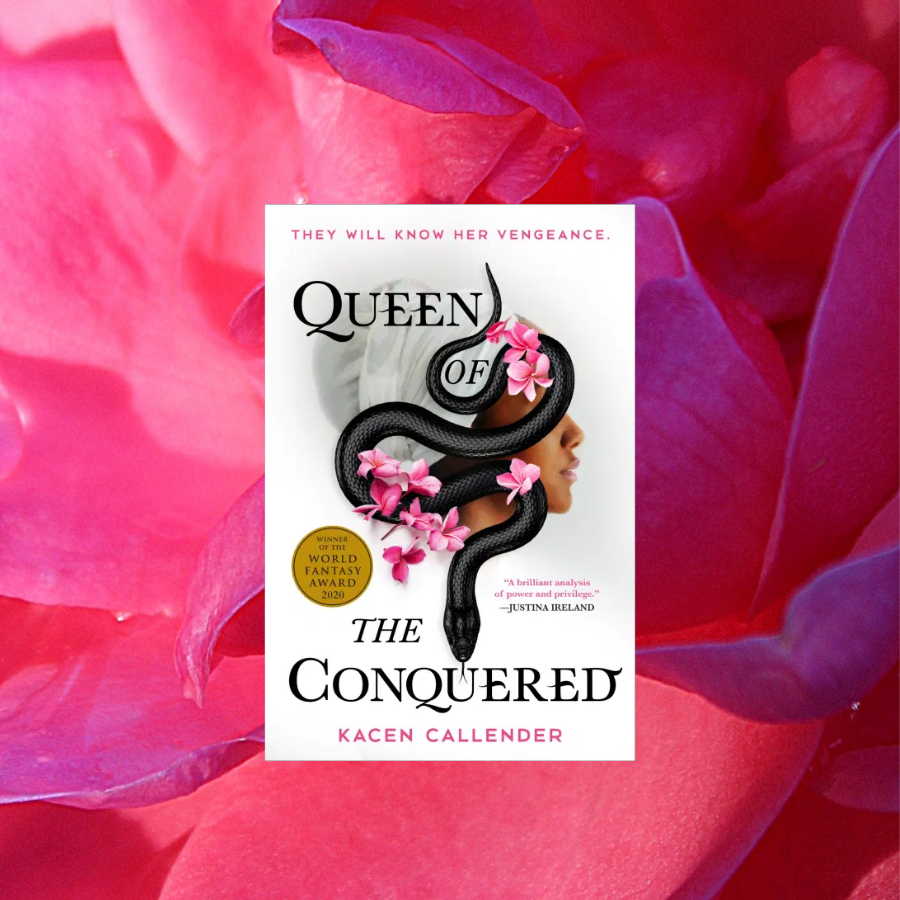Upon hearing the the title “Queen of the Conquered”, I thought of a lyric from Nicki Minaj’s legendary verse on the song MONSTER, “You could be the king/But watch the queen conquer.”
Queen of the Conquered by Kacen Callender is the first of the Island of Blood and Storm series. Sigourney Rose is the only surviving daughter of a lineage from the islands on Hans Lollik. She is seeking vengeance for her slain family. Her kraft is the power to control people’s minds, which is a careful thread of personal precision to conquer and avenge.
Colonization is a centerpiece of the story. It is prevalent when you see the many Dutch, French, German names of the characters, islands, and ideals. This is a Carribean-inspired novel. Skin color prolifically shows the humanity of the characters, including Sigourney. “I’m an islander, after all, who should be a slave along with my brown-skinned people-not ruling over them and this island.” From this sentence, skin color is also the hierarchy of power. Sigourney’s hesitancy to avenge is married with her anger, which she fights against.
Ghosts and chosen family are power players. Sigourney hardly talks about her slain family. It feels like a memory she does not want to flex, like the blood from her heart will mold. She does not take speaking about her family for granted. Water plays a symbolic connection to slavery, as does song. Hearing the bowels of ancestors in the water as ships cross the islands is searing.
I have read a literal handful of fantasy novels. The greatness of this novel is how the story is utilized on the page. It is an opus under 400 pages. There are a plethora of characters in this novel. Callender assures that they make an impression in the story. Aside from Sigourney, four of these characters carried a significant place in my heart. The story holds no qualms. There is tenderness in the prose when it is graphic. Color, vision, reverence. My senses were captivated by the story. Konelig means majestic royal in Norwegian. This word arrives throughout the story. Elskerinde is a Danish word meaning mistress yet is used more like a regal title. Google translator and I have reunited.
This is the first novel I shook like a tambourine after I finished it.


